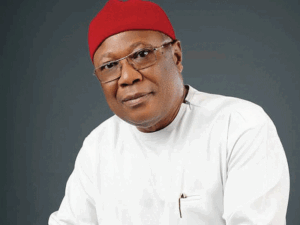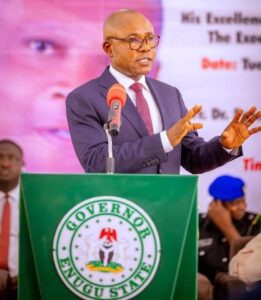Former Governor of Imo State, Dr. Ikedi Ohakim, has disclosed that he contemplated suicide in 2011 following a false allegation that he slapped a Catholic priest—a claim he said was completely fabricated and deeply damaging to his reputation.
Speaking during an interactive session with youths in Owerri, the former governor recalled the emotional toll the incident took on him, noting that although he initially dismissed the rumour, its rapid spread across media platforms became overwhelming.
“When I first heard the rumour, I waved it off. But when it gained ground and appeared on national television, I became completely overwhelmed. At some point, I actually contemplated suicide,” Ohakim said.
He clarified that he was not in Imo State on the day of the alleged incident and presented evidence to that effect, including his travel records. “I can show you the air ticket. I wasn’t even in the state when it happened,” he stated.
Ohakim said he was eventually vindicated when the Reverend Father in question reportedly admitted to Catholic cleric Father Ejike Mbaka that the incident never occurred. According to him, Mbaka later addressed the matter publicly, acknowledging the falsehood and urging those involved to seek forgiveness.
Reflecting on the controversial 2011 governorship election, Ohakim claimed he won the poll “clean and clear” but was removed from office through what he described as a “civilian coup.” Despite the setback, he said he accepted the outcome without resentment.
He also used the occasion to highlight achievements during his tenure, particularly the Clean and Green programme, which he said contributed significantly to environmental sustainability, public health, and tourism in Imo State.
Offering guidance to the youth, Ohakim stressed the importance of vocational training and skills acquisition in today’s economy.
“As I sit here today, I am a trained welder, sheet metal fabricator, carpenter, and artist. Any human being without a skill in the 21st century is like an animal in the bush,” he said, urging young people to take charge of their futures by becoming self-reliant through skill development.




